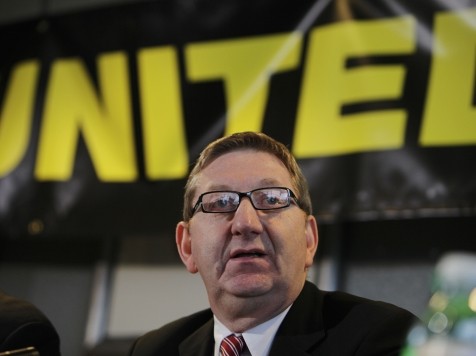
This weekend the Labour Party held its so-called ‘special conference’, organised to give delegates a vote on a series of reforms concerning the party’s relationship with trade unions.
Members travelled from across the country to the conference hall in East London’s Docklands, cramming themselves onto rail replacement buses after London Underground decided this would be the best day to cancel all trains to the venue.
“Boris is sabotaging us,” one delegate half-joked of the capital’s Conservative mayor.
My first encounter was with a megaphone-wielding woman representing the Trades Union Congress. Her protestations that “the Labour leadership is a disgrace” reverberated around my still hungover head.
It was her contention that Ed Miliband, the Labour leader who last year promised he was “bringing back socialism”, is still not socialist enough.
Coffee in hand, I took my seat. A promotional video played on the giant screens at the front eulogising Neil Kinnock, the former Labour leader whose left-wing manifesto Miliband wants to emulate and whose electoral record the Tories want him to emulate.
I had lost count of the number of pleas for delegates to fill empty seats by the time the Master of Ceremonies gave up and called the Labour leadership to the stage.
Deputy leader Harriet Harman, who is under heavy pressure from all quarters of the media over her failure to apologise for her links to the Paedophile Information Exchange (PIE) in the 1970s, received a rapturous round of applause.
Harman, who along with her husband Jack Dromey stand accused of being apologists for child abuse, took her seat next to Miliband in a show of support. It caused much amusement that the pie shop at the venue closed for the day.
Miliband stood up. “I want to thank you: local parties, trade unions, socialist societies,” he began, quickly placating the crowd with some tried and tested attacks on Labour’s opponents.
“Remember that picture of the Conservative front bench: people from Eton, people from Harrow, not one woman,” and then, “things are so bad for Lib Dems they’re going the way of the telephone box”.
At least one person laughed.
Nasal, wide-eyed and with a mouth full of teeth, Miliband recounted one of his famous anecdotes: “one lady asked me how do we persuade people Labour Party members are normal?” Taking a look at himself and his paedophile group-affiliated deputy might be a start.
Eventually, he reached the end. “Vote for these reforms!” he urged delegates. “Vote for more stitch ups you mean,” a man near me retorted loudly. The room rose to applaud their leader. One woman resolutely insisted “I’m not standing up.”
Then it was the turn of members to have their say. One by one they were called to the stage, laughing derisively as their host at one point asked “can I call the blonde woman in tweed?”
Those called were mostly made up of sitting Members of Parliament, their wives, prospective candidates or trade union bosses. Actual grassroots members barely got a look in.
“I don’t get up in the morning to line my pockets,” £127,000-a-year GMB union leader Paul Kenny fibbed.
One Labour candidate told her future voters “dare I say it, parliament needs more people like me”. Hardly the sort of thing to endear you to your electorate.
The speaker of the day was a trade unionist party member who berated his leader, an awkward Miliband sitting just a few feet away. “We need more socialist policies,” he shouted into his microphone, “I would like to call for the nationalisation of the commanding heights of the economy.” And you thought UKIP’s members were nutty.
Then Len McCluskey was up. The powerful Unite union leader is a hate figure among the Right, perhaps despised more only by the Labour leaders whose authority he shows no respect for.
The most popular speaker among delegates, McCluskey had no trouble convincing them to applaud Steve Deans, the Unite official condemned by Labour bosses for his role in the Falkirk vote-rigging scandal.
Red Len finished up with a message for Miliband and a direct challenge to his authority: “this is our party and we’re going nowhere.” It was hard to tell at which point Miliband looked more annoyed: that statement from McCluskey or MP Keith Vaz’s Freudian slip saying that McCluskey was Labour’s leader.
Labour’s union reforms, backed wholeheartedly by the unions themselves, passed by an overwhelming 84% to 16%. These reforms do nothing to prevent union influence in Labour candidate selections, nothing to stop unions having influence over Labour policy, nothing to stop unions installing their preferred candidate as Labour leader.
As McCluskey says, the reforms are “music to my ears”. He was the winner from Labour’s special conference.

COMMENTS
Please let us know if you're having issues with commenting.